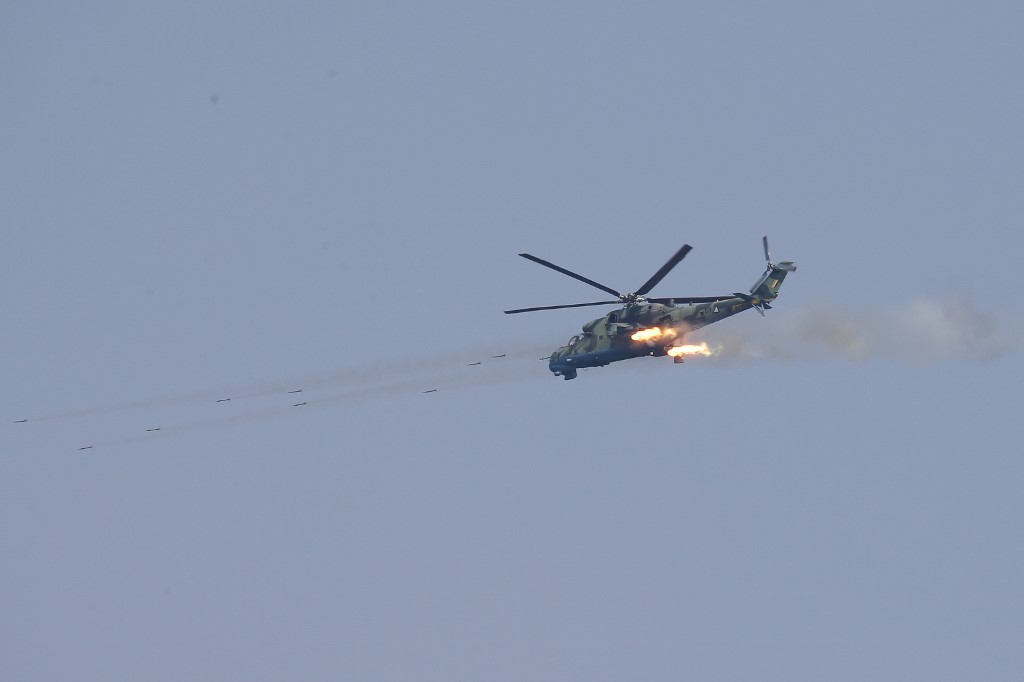
The Myanmar army said Friday that six Rohingya killed by helicopter gunfire in restive Rakhine state were working with a rebel group, the latest escalation in violence that the UN says "may constitute war crimes."
Ethnic and religious tensions divide western Rakhine state, where the army forced out some 740,000 Rohingya Muslims in 2017 in a brutal crackdown.
UN investigators have called for the prosecution of top generals for genocide and crimes against humanity.
Now the military is waging war against the Arakan Army (AA), which claims to represent ethnic Rakhine Buddhists and has killed 22 members of the army and police since early January.
The conflict has spread across the state, displacing more than 20,000 civilians of various ethnicities, according to UN figures.
The latest skirmish on Wednesday was in Buthidaung township, according to a report from the army chief's website.
"While combatting AA terrorist insurgents ... six Bengali who were together with insurgents ... were killed and nine others injured," the website reported Friday, using a derogatory term for the Rohingya which falsely implies they are newcomers from Bangladesh.
But an AA spokesman denied there was any fighting on April 3 between his group and the military, which "just shot randomly from two helicopters".
"Some Bengalis who were cutting bamboo were killed and injured because of their shooting," AA spokesman Khine Thu Kha told AFP.
Condemning the "indiscriminate attacks" against civilians, the UN refugee agency said they were "deeply disturbed" by the escalation in violence across the state.
According to their sources on the ground, "at least seven civilians" were killed while 18 others were injured, said spokeswoman Ravina Shamdasani in Geneva.
"The Myanmar military is again carrying out attacks against its own civilians—attacks which may constitute war crimes," said Shamdasani.
"The consequences of impunity will continue to be deadly."
Authorities have vowed to crush the AA rebellion, which has simmered since the group's formation in 2009.
The rebels enjoy widespread support from ethnic Rakhine Buddhists, who have felt marginalised for decades in one of the country's poorest states.
Much of Rakhine is in strict lockdown and information is difficult to verify independently.

